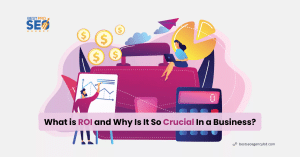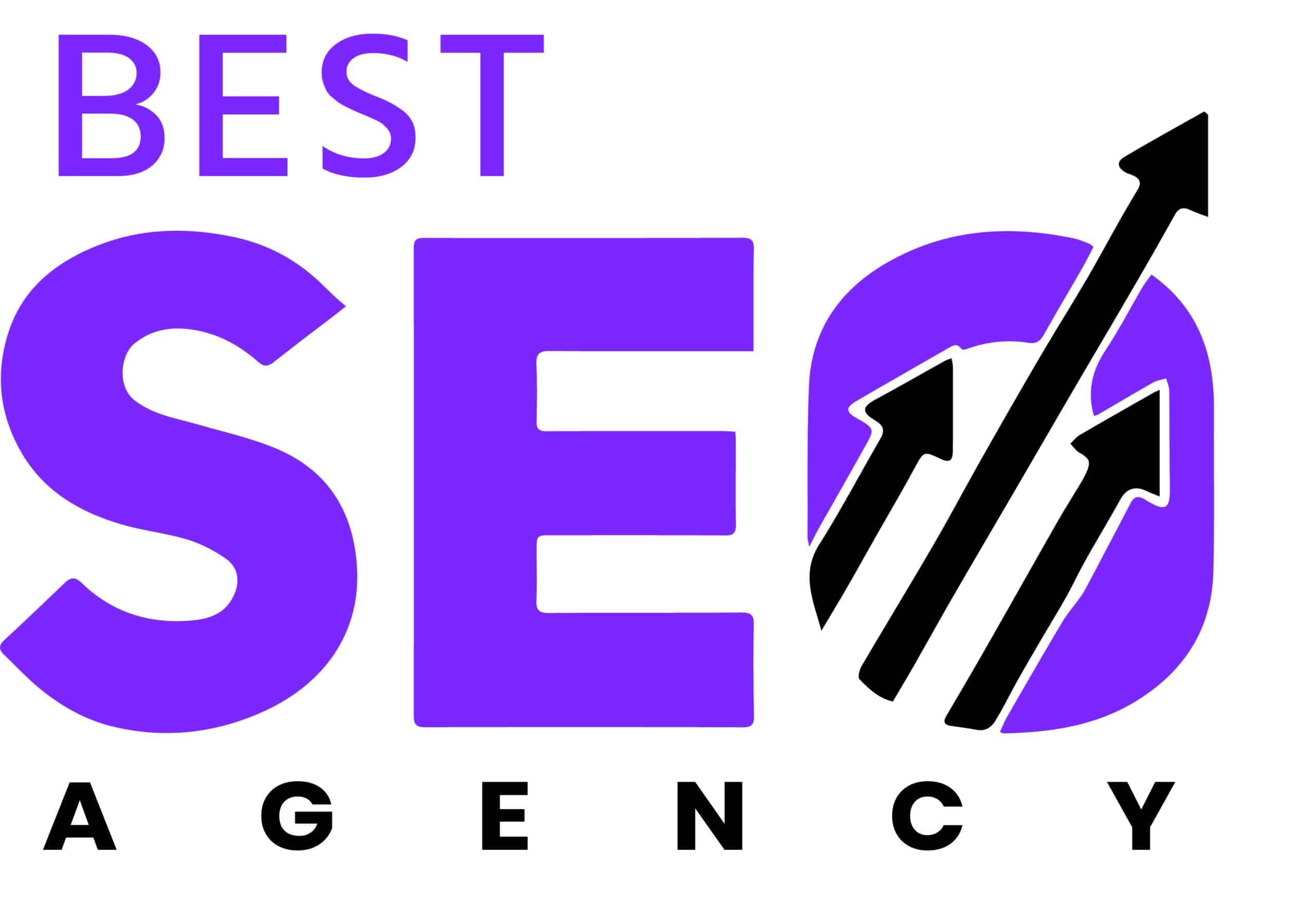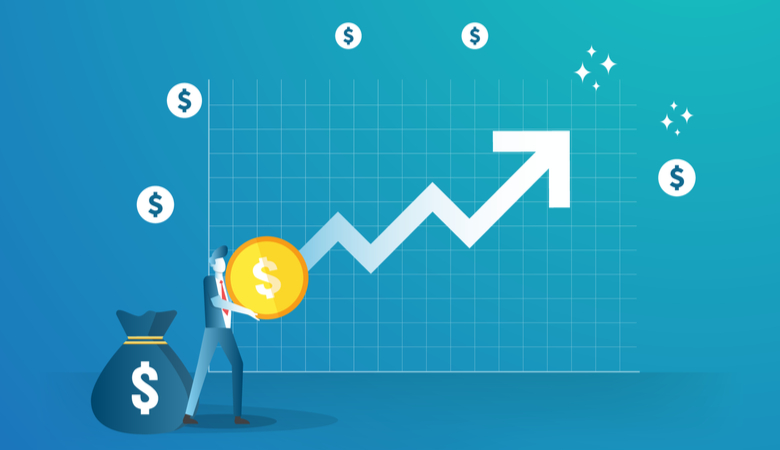
Understand, Measure, and Maximize Your SEO Impact
In today’s competitive digital world, making smart business decisions isn’t just about increasing traffic or sales — it’s about knowing the return on investment (ROI) for every move you make. Whether you’re running paid ads or investing in long-term SEO, tracking ROI tells you whether your efforts are working — and where to pivot.
This blog breaks down what ROI really means, why it’s crucial in business, and how to prove your SEO ROI to stakeholders with data-backed confidence.
What is ROI in Business?
ROI (Return on Investment) is a key performance indicator that measures the profitability of an investment. In simpler terms, it shows how much return you get for every dollar you spend.
ROI Formula:
ROI=(Net Profit−Cost of Investment)Cost of Investment×100\text{ROI} = \frac{(\text{Net Profit} – \text{Cost of Investment})}{\text{Cost of Investment}} \times 100
If you invest $1,000 in an SEO campaign and generate $3,000 in revenue, your ROI is 200%.
Why is ROI So Crucial for a Business?
Understanding ROI allows business leaders to:
1. Make Data-Driven Decisions
ROI provides clear visibility into which marketing initiatives are driving actual business growth — and which are wasting resources.
2. Optimize Marketing Budgets
When calculating ROI, businesses can reallocate funds from underperforming campaigns to high-return areas like SEO, email marketing, or conversion-focused landing pages.
3. Demonstrate Financial Accountability
From quarterly reviews to stakeholder pitches, ROI tracking proves that your marketing efforts are strategic, not speculative.
4. Improve Long-Term Strategy
ROI is not just a past-performance metric. It also guides future marketing planning, showing what’s working and where to double down.
How ROI Connects to SEO Strategy
SEO is often seen as a long-term strategy, which can make proving its value a bit trickier than paid ads. But when done right, SEO offers some of the highest ROI in digital marketing — thanks to ongoing, compounding traffic and brand visibility.
Here’s how ROI powers your SEO decisions:
- Keyword Targeting ROI: Are the keywords you’re ranking for actually driving conversions?
- Content ROI: Are your blogs, landing pages, and guides bringing measurable value?
- Backlink ROI: Are link-building efforts improving domain authority and sales?
- Technical SEO ROI: Are faster load times and structured data resulting in higher rankings and better conversion rates?
How to Prove the ROI of SEO (Step-by-Step)
Here’s how to calculate ROI in SEO with data you likely already have:
1. Track Organic Conversions
Use Google Analytics 4 (GA4), HubSpot, or your CRM to monitor leads, form fills, sales, or downloads from organic traffic.
2. Assign Dollar Value to Each Action
Even non-sales actions (like a booked consultation or newsletter signup) can be given an estimated value for better ROI calculation.
3. Compare SEO Costs vs. Revenue
Example:
SEO investment: $2,000/month
Qualified leads: 100
Lead value: $100
Total return: $10,000
ROI = 400%
4. Include Supporting SEO KPIs
Combine ROI with keyword rankings, bounce rate, average time on page, and backlinks to get a full picture of your SEO performance.
Why is ROI Important for My Business in 2025?
Digital competition is fiercer than ever.
You can no longer afford to “hope” your marketing works. ROI is your proof.
Budgets are tighter, and strategy must be smarter.
Every dollar spent must work toward growth. ROI ensures every campaign justifies its existence.
SEO isn’t “free” — it’s an investment .
Is SEO Really Worth the Investment?
Many business owners ask the same question: “I’m investing in SEO — but is it actually paying off?”
This is where Return on Investment (ROI) becomes your best tool to measure whether your efforts are worth it. SEO doesn’t give overnight results like paid ads, but it builds long-term, compounding value.
Why ROI in SEO Matters:
- It Measures Profitability : SEO ROI helps you compare how much you’re spending (on SEO tools, agencies, or content) against how much you’re earning from the increased traffic, leads, or sales it generates.
- It Aligns with Business Goals : Instead of chasing vanity metrics like impressions or clicks, ROI keeps your SEO focused on business results — revenue, customer acquisition, and retention.
- It Justifies the Budget : If you’re trying to get internal buy-in for SEO (from stakeholders or your CEO), showing the potential or actual ROI can make a powerful case.
SEO is a Long-Term Asset
Unlike paid ads that stop the moment you stop paying, SEO continues to deliver traffic and conversions over time. A blog post you rank today might still bring leads a year from now — which means your ROI increases the longer your content stays visible .
Tools for ROI Tracking
Use these tools to make your ROI tracking easier:
- Google Analytics 4 (GA4) – for traffic, conversions, and behavior
- HubSpot or Salesforce CRM – for lead and revenue tracking
- Google Looker Studio – for custom ROI dashboards
- SEMrush / Ahrefs / Moz – for tracking keyword and backlink ROI
SEO ROI vs. Other Marketing Channels
| Channel | Short-Term ROI | Long-Term ROI | Cost Sustainability |
|---|---|---|---|
| Paid Ads | High | Low | Stops when budget stops |
| SEO | Medium | Very High | Evergreen return |
| Social Media | Variable | Medium | Depends on content & reach |
| Email Marketing | High | High | Cost-effective & personal |
This proves SEO, when combined with tracking and content strategy, can deliver higher ROI over time.
What’s a Good ROI for SEO?
This varies by industry, but in many cases, SEO ROI exceeds other marketing channels. According to studies, businesses often see a 200-500% return over time when SEO is executed strategically.
When is ROI Most Needed?
- During quarterly reporting to show marketing effectiveness
- When pitching for a bigger marketing budget
- When switching from traditional to digital strategies
- When justifying long-term investments like SEO
- When launching a new product, campaign, or website
How to Improve Your Marketing ROI
If your campaigns show lower ROIs, don’t panic — optimize.
Steps to Improve ROI:
- Cut underperforming campaigns
- Refine your target audience
- Use A/B testing on landing pages
- Invest in high-converting content
- Focus on long-tail keywords
- Track every conversion and cost
Final Thoughts: Why ROI is a Must-Know Metric in SEO
If you’re not measuring ROI, you’re guessing. And guesswork has no place in modern digital marketing.
In 2025, businesses that grow are the ones that measure, analyze, and optimize — and ROI is at the heart of all three.
Ready to track your SEO ROI the right way? At Best Pro SEO Agency , we help you implement goal-based SEO strategies that deliver real, trackable returns — not just rankings. Let’s turn your organic traffic into profit.
Frequently Asked Questions (FAQ)
What is ROI and why is it so crucial in a business?
ROI (Return on Investment) measures the profitability of an investment. It’s vital because it shows whether your strategies generate value or waste money.
How can you prove the ROI of SEO?
By tracking conversions, assigning value to each action, and comparing cost vs. return using tools like GA4, HubSpot, or CRM analytics.
Why is ROI important for my business?
It helps optimize marketing budgets, validate campaign success, and guide strategic growth decisions.
How does ROI improve?
You improve ROI by reducing waste, increasing efficiency, and investing more in high-performing areas like SEO content or backlink strategies.
What is the purpose of ROI in marketing?
To assess which campaigns deliver the best value for your money and to ensure budget decisions are data-driven.
How do you calculate marketing ROI?
ROI = (Profit − Investment) ÷ Investment × 100. This helps you understand how much return you’re making from your marketing activities.
How does ROI affect decision-making?
ROI offers clarity — helping marketers and business owners prioritize, scale, or stop campaigns based on real performance.
What is the formula for ROI?
ROI=(Profit−Investment)Investment×100ROI = \frac{(\text{Profit} – \text{Investment})}{\text{Investment}} \times 100
How can small businesses measure ROI?
Small businesses can use free tools like GA4 and Looker Studio, assign value to conversions, and track lead sources to measure return.
What affects ROI the most?
Factors like targeting accuracy, landing page design, content quality, and conversion tracking can make or break your ROI.






